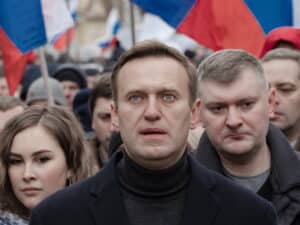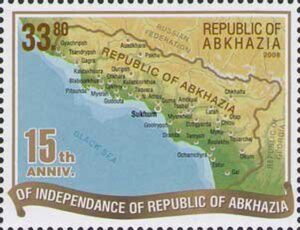Berlin’s Charite hospital treating Russian opposition politician Alexei Navalny has said tests indicate that he was poisoned.
The team of doctors who has been examining Navalny found the presence of “cholinesterase inhibitors” in his system and said that the leading Russian oppositionist was most likely given nerve poison.
The case is irresistibly reminiscent of the attack on ex-KGB agent Sergei Skripal in 2018. Navalny is being given an antidote, atropine, the same drug used in the case of Skripal by UK doctors after his poisoning with the nerve agent Novichok in Salisbury.
The hospital said “the patient is in an intensive care unit and still in an induced coma. His condition is serious, but currently, there is no acute danger to his life.”
What happened?
Navalny has been travelling around Russia to prevent candidates supported by Putin from being elected in the regional elections in September. His spokeswoman Kira Jamis said he allegedly drank a cup of black tea containing poison before boarding on the flight from Tomsk to Moscow.
Navalny’s flight made an emergency landing in Omsk where he was first treated. The doctors in the hospital in Omsk stated that tests showed no sign of cholinesterase inhibitors in his body, and his illness was allegedly caused by a metabolic disorder triggered by low blood sugar.
A plane arrived from Germany on Friday, 21 August to bring Navalny to Germany, but Navalny’s family did not immediately receive permission to move him. The chief doctor of the Omsk hospital, Aleksandar Murahovski, said Navalny was too ill to be moved but then allowed him to board a medical evacuation flight, which landed in Berlin on Saturday, 22 August.
Reactions
The Kremlin has denied any need to investigate the hospitalisation of Alexei Navalny and has cast doubt on the German hospital’s diagnosis that the opposition politician was poisoned. President Putin’s spokesman said it was too soon to determine a cause, and also denied claims that the Kremlin was in any way involved in Navalny’s illness.
French President Emmanuel Macron and German Chancellor Angela Merkel held a joint conference during which they expressed their concerns over what happened to Navalny and demanded a full and thorough investigation. Macron offered Navalny and his family “all necessary assistance …in terms of health care, asylum, protection” and Merkel said that Germany will let him have all the medical help that is needed.
The widow of Alexander Litvinenko, the Russian agent who was killed in London by radioactive poisoning in 2006, raised concern that Navalny’s enemies may have decided to use a new strategy to stop him for good.
Role of Alexei Navalny in Russian politics
Alexei Navalny is the leading figure of the opposition in Russia and the most vociferous critic of Vladimir Putin. He has been repeatedly pointing to cases of corruption and abuse of power. He became well known all over the world in 2009 for the discoveries published on his blog.
In 2011, Navalny was arrested for the first time and eventually sentenced to 15 days in prison for “resisting state power.” Shortly before that, he appeared as a speaker at the demonstrations against possible election fraud in the parliamentary elections of the same year.
In 2013, he was sentenced to five years in prison by a court in the City of Kirov for embezzlement. The sentence was later changed to probation. The trial took place precisely at the time of Navalny’s candidacy for mayor of Moscow, when he won 27% of the votes.
In December 2016, Navalny announced his candidacy in the presidential elections in March 2018. However, the Central Election Commission declared his candidacy unacceptable, explaining that Navalny had been convicted and was serving a suspended sentence. In 2017, the European Court declared the verdict against Navalny illegal.
In recent years, he has been organizing mass protests to support candidates who opposed the ruling “United Russia” in the elections. Navalny launched the “smart voting” campaign in 2018. Namely, Navalny and his supporters elevated rival candidates considered most likely to defeat the ruling party. In each Moscow district — and in regional and local elections across the country — they told prospective voters exactly who, by their estimate, those candidates were.
Political scientist Maria Snegovaya said that after the adoption of the constitutional amendments in July 2020, Putin’s regime evolved into even more repressive authoritarianism. “Everything is allowed now. The Kremlin fears that Belarusian protests will spread to Russia, especially after the events in Khabarovsk, in the Far East, where the protest over the arrest of the governor has lasted for almost two months, and there is also a threat of “smart voting,” said Snegovaya.
Sources: Aljazeera, DW 1, DW 2, BBC, N1, France 24
Photo: Wikimedia Commons



